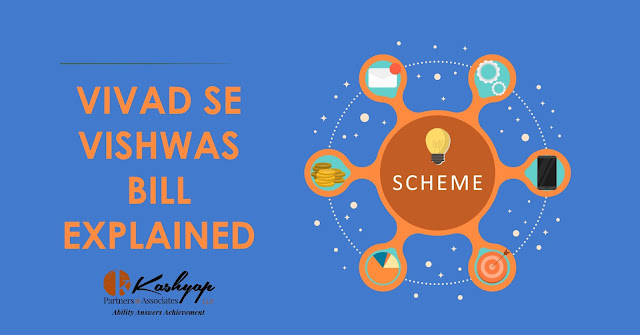The Indian Government tabled a mechanism for resolving pending direct tax disputes through the recently introduced Direct Tax Dispute Settlement Scheme, known as the ‘Vivad se Vishwas Bill 2020’. This bill, long awaited, was acclaimed by the financial experts for bringing respite to long pending litigation cases was introduced in Lok Sabha by the Minister of Finance, Ms. Nirmala Sitharaman, on February 5, 2020.
With consideration of the ongoing pandemic, the Vivad se Vishwas Scheme was extended till 30th June 2021 earlier. Further leeway has been granted: allowing payment without interest, under the extension of two months’ time period from 30th June to 31st August of this year. As per the recent update, the last date of payment of the amount under the scheme, has been notified as 31st October 2021, which comes as a relief to the taxpayers still grappling with the effects of the health crisis brought by the COVID-19 pandemic. According to the official data, the government received over 130 thousand applications under the scheme that involved nearly 150 thousand disputes of which the vast majority related to appeals by assesses. While the total disputed amount was ₹1,00,437 crores, the government received ₹54,005 crores payments against the disputed tax.
The scheme is similar to the ‘Sabka Vishwas Scheme’, which was brought into effect to unclog litigation cases in indirect taxes in the year 2019. It resulted in settling over 189 thousand cases. With the Sabka Vishwas Scheme the government raised taxes worth 90 thousand crores; much more than the government anticipated. In light of the success of this scheme, the government is expecting to address 4.83 lakh pending direct tax cases worth Rs. 9 lakh crore in the courts with Vivad se Vishwas Bill.
It should be noted that this comes at a time when the government is witnessing a shortfall in the revenue due to economic havoc brought by the pandemic. The down-trend of the direct tax collection is lower than their budget targets due to a slackening economy and a massive rate cut in the corporate tax rate brought in the year 2019.
After the bill was introduced in the Lok Sabha several representations were made, based on these representations, the Government brought some amendments to the bill on 4th March 2020. The Vivad se Vishwas Bill 2020 now provides a mechanism to resolve the disputes related to income tax and corporate taxes and settle them before the Commissioner (Appeals), Income Tax Appellate Tribunals (ITATs), Debt Recovery Tribunals (DRTs), High Courts and the Supreme Court. The amendment also covers certain search and seizure cases where the recovery is up to ₹5 crores.
For the tax payment, the taxpayer is required to pay only the amount of the disputed taxes which gives him/her the complete waiver of interest, penalty and prosecution provided he/she pays by 31st October 2021. The mechanism of the bill gives immunity to the appellant. Once a dispute is resolved and settled, no further levy interest or penalty will be imposed in relation to that particular case. However, if the appellant provides invalid or untrue information or violates the Income Tax Act, 1961, then the case of dispute can be revived.
Originally posted on www.kpalegal.com on 9th Sep. 2021



Post a Comment